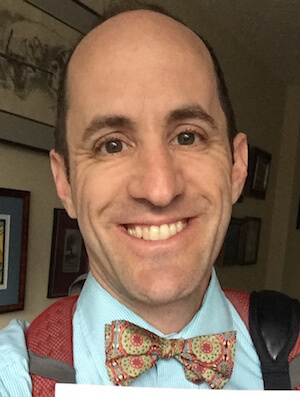Students composed their own talmudic sugyas using argument forms mastered during their year of study, based on key themes in biblical and talmudic texts they had learned. They then transferred the concepts of their sugyas into three-dimensional sculptures that reflect the thesis and arguments of the sugyas they had written.
Entry Narrative
Introduction
For students in a ninth-grade, combined Talmud and Tanach honors class, I sought to adapt a proven method from an informal, camp setting to a formal, school setting, in order to expand the modalities for student demonstration of learning in a summative assessment. I also wanted to experiment within my class with the school’s emphasis on maximizing the new STEAM/design space and how I might apply it into a Jewish studies classroom.
The end-of-year assessment required students to pick one of the the major themes we discussed throughout the year, and to construct a sugya of their own. This sugya was to be based on their chosen theme, needed to have an overarching theme of their argument, and needed to incorporate a prescribed number of different sugya structures which they had learned. The second stage of the assessment asked students to design and execute (within specified design limits) a visual object that communicated the overarching theme they had set forth within their sugya.
The overall Comprehensive Narrative writeup can be found here: https://docs.google.com/document/d/1EBt8ZYbm_al7k7u5-CmlkAn_rBgyIq5MvqgQCb3lPI4/edit?usp=sharing
Academic context of the school: https://docs.google.com/document/d/1next11z8ah_mWn2UTsHF-7FN-1ZNZ6kdFl0XpHboe08/edit?usp=sharing
Discussion of pedagogic background: https://docs.google.com/a/jbha.org/document/d/1QzgsjyH2VASbf3CHW6DqDIpCAc0DqMVtvmxad_GnhbU/edit?usp=sharing
Project itself: https://docs.google.com/a/jbha.org/document/d/1-l7v–x7uAYqmMZUUDL-aK_XGF80xKXWTEzeztukc8A/edit?usp=sharing
Reflections, including selected student impact statements: https://docs.google.com/document/d/1q1X9bfShmonRIZpX2D3is7UoR_RXSa2255_bcqpvTIA/edit?usp=sharing
Full texts of student impact statements are here: https://docs.google.com/document/d/1sPLhT4B-0vud8vniffz7tN2VP01qcV7Xpq6pVUH-_Xc/edit?usp=sharing
Images and design statements for completed student work can be found here: http://www.jbhasteam.com/9th-grade-beit-midrash-5777-making-talmudic-idea-occupy-space, and some images to encourage you to click through are here:
Entrant Bio(s)
Rabbi Daniel Rosenberg recently finished his PhD at New York University, and has brought a performing expertise in Jewish folk storytelling to collaborations in Jewish arts education and art installations for more than fifteen years. He has led at day schools in Chicago and Montreal before coming to Philadelphia to the Jack Barrack Hebrew Academy.

This entry has been tagged with the following terms: